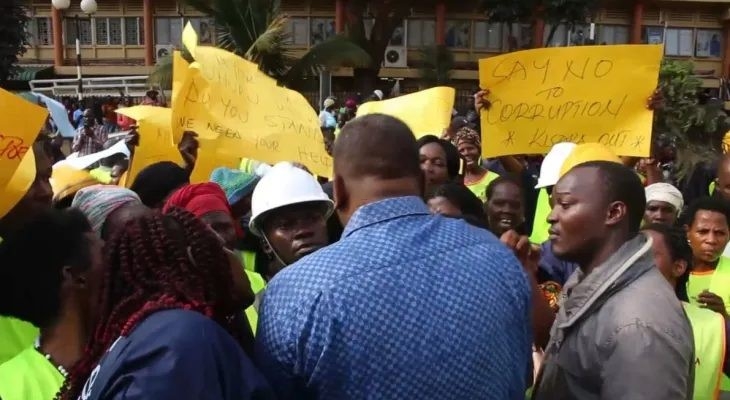OPINION
By Andrew Besi
- “We must stop merely talking about corruption in passing and realise that corruption is a societal curse.” Hon. Janet K Museveni, 5th June 2024.
Last September, Gen. Kale Kayihura; a soldier and intellectual that I admire; retired. In a ceremony at Entebbe to honor him and 8 other Generals, he spoke of his first encounter, in 1979, with Mr. Museveni and FRONASA. At the time, Kayihura was a Law student at Makerere University.
“What, particularly left an indelible mark on us,” he said, “was seeing an accomplished intellectual in military uniform delivering a lecture to university students that was so remarkable: full of new knowledge, and especially a fresh and profound interpretation of our history that we had never heard before.”
Until the emergence of FRONASA, the military uniform was, to many Ugandans, a symbol of “primitive brutality, mediocrity, failure, and uncouthness.” Of course, as we now know, in the wake of a fraudulent electoral process culminating in the return to power of Mr. Milton Obote and his Uganda Peoples’ Congress in December 1980, FRONASA morphed into the National Resistance Army/Movement (NRA/M).
The NRA was one of a myriad of rebel armies waging war against Milton Obote and his Uganda National Liberation Army (UNLA). However, it is only the NRA that correctly and wisely sought the support of ordinary Ugandans. This they did by adopting a correct political ideology that they then discussed with and taught to the citizens through Resistance Council Meetings and Publications.
Today, most of the political and civil service strata seem to exude “primitive brutality, mediocrity, and uncouthness.” Progressive political ideology, captured in the 10-point programme, has been replaced by Corruption.
Let me explain: Addressing participants at the NRM’s National Delegates Conference in January 2020, Mzee (H.E. President Museveni) spoke of the point where “the African missed the bus of history.” The point he was referring to was the Industrial Revolution in Europe that for the “first time in human history” allowed, on a scale not seen before, the transition from human and beast powers to machine power. “The combination of machine power and gun powder”, Mzee asserted, “by 1900, had caused the total conquest of the whole of Africa, except for Ethiopia.”
The Industrial Revolution led to the emergence of a middle class. It was the middle class that led to the 1789 French Revolution and in 1870, the emergence of a “Pan-German Movement under Bismarck” that led to a United Germany in 1871.
119 years after Germany’s unification, what we now know as Uganda; on account of backward and disastrous post-independence political maneuvering; had no significant middle class to speak of. This tragedy is the acme of the NRM’s insistence on “convincing all homesteads to join the commercialisation movement” by emphasising Commercial Agriculture as well as adopting Education for all. An educated labor force, it is reasoned, is then able to “join the culture of creating wealth and jobs in the four sectors.”
Of course, in the years since 1990, good progress has been made. Our economy is significantly larger than at any time in our 62-year history as a Republic. Political pluralism and a myriad of fundamental freedoms are not shunned.
But along the way, as both our population and economy have expanded, Corruption has increasingly gained a foothold to the extent that today, it costs us nearly 16% of GDP – USD 2.6bn per year.
It is so ugly that in places such as the Ministry of ICT&NG, the Secretary has as punishment for daring to question illicit transactions worth upwards of Ugx 5bn, withheld payment to 38 staff for 11 months and caused the unfair transfer of other staff. Accomplished intellectualism, new knowledge, and a profound interpretation of history are not welcome.
It is so ugly that the Directorate Of Revenue Intelligence has renewed a Ugx 462bn contract with an entity that already supplied a faulty Telecom Traffic Monitoring System.
It is so ugly, that at Mulago National Referral Hospital, Ugx 6.3 billion was lost through irregular and double payments.
This sad list does not shorten.
It is now a known fact that to report to any of our investigators in the main anti-corruption agencies, including at State House and the Police, is to create yet another opportunity to widen the web of corruption.
“The nation,” Thurlow Weed wrote, “cannot afford to be deprived of so much integrity, talent, and patriotism” and yet unless “we stop merely talking about corruption in passing,” I fear this will be the fate of Uganda.
The writer is a student of Musevenomics, an optimist teetering on pessimism.
On X: @BesiAndrew


